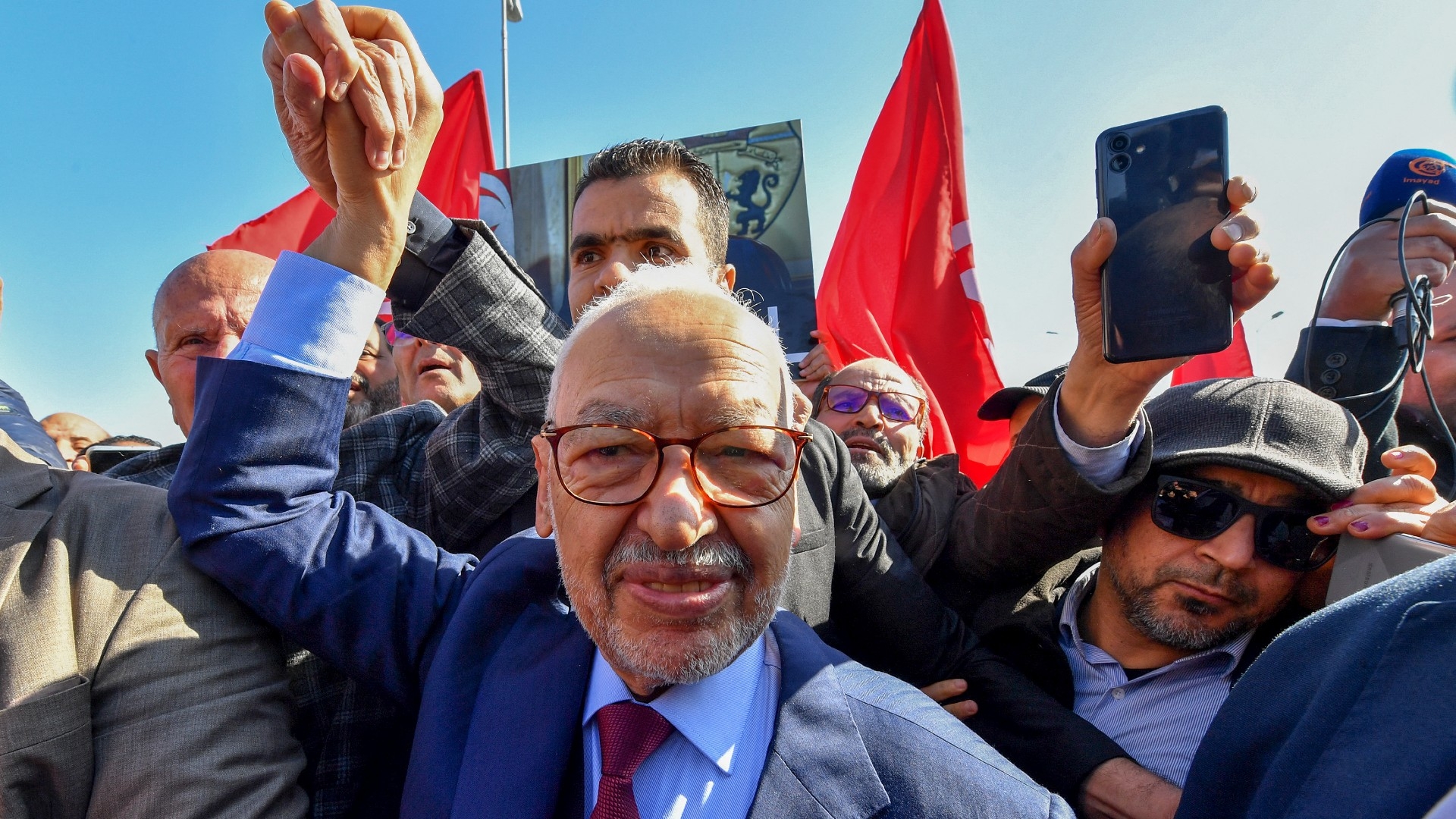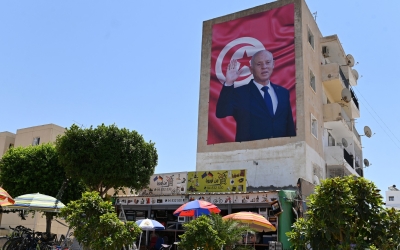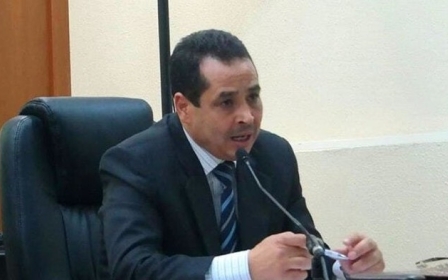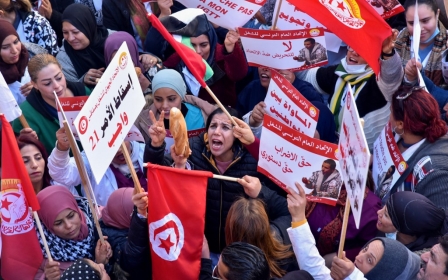Tunisia: Ghannouchi denounces Saied's 'dictatorship' as he appears for questioning

Rached Ghannouchi, the leader of Tunisia’s largest opposition party, Ennahda, appeared at a court on Tuesday after being summoned by a judge on charges dismissed by his party as “fabricated”.
The hearing comes after several critics of Tunisian President Kais Saied have been detained in recent days as part of a crackdown decried by activists as yet another part of Saied's ongoing power grab.
In a statement made to a gathering of supporters and journalists after he arrived at the anti-terrorism unit of the Tunis court (Judicial Center for Counter-Terrorism), Ghannouchi accused Saied of attempting to suppress political opposition and muzzle free speech.
'They failed to confront us with democratic means, so they resorted to using the judiciary'
- Rached Ghannouchi
“The interrogation is yet another episode of political targeting of the opposition of Kais Saied,” he said, adding that the detentions in recent days “aim at diverting the people from their real problems, namely dictatorship, the absence of parties, and the attempt to control the press".
"They failed to confront us with democratic means, so they resorted to using the judiciary," he said.
New MEE newsletter: Jerusalem Dispatch
Sign up to get the latest insights and analysis on Israel-Palestine, alongside Turkey Unpacked and other MEE newsletters
Tunisia has been engulfed in political and economic crises since 2021 when Saied unilaterally suspended parliament - where Ennahda held the largest number of seats - and dissolved the government in what many have called a "constitutional coup".
He subsequently ruled by decree, before pushing through a new constitution that enshrined his one-man rule.
Ghannouchi, a fierce critic of Saied's power grab, has since been embroiled in investigations into money laundering and incitement to violence that critics say is politically motivated.
Escalating crackdown
Neither the police nor the judge has commented on Ghannouchi's hearing on Tuesday.
Ghannouchi's lawyer Samir Dilou told reporters that the accusation was based on a complaint by police about a speech he gave last year at the funeral of a party member, where he said the deceased: "Did not fear a ruler or a tyrant, he only feared God."
The lawyer said the police objected to the reference to a tyrant (Arabic: taghout) and that they viewed the language used as being close to that used by Islamist militants to describe secular authorities.
Ghannouchi was released after the hearing.
Ghannouchi was initially summoned on 14 February, but could not attend due to health reasons.
His office told Middle East Eye on Monday that a judge threatened the Ennahda leader with arrest if he failed to appear on Tuesday.
"This is the seventh time over the last few months that Mr Ghannouchi has been summoned by Kais Saied's judiciary to be questioned on spurious, fabricated charges," his office said.
"In view of the recent wave of arrests of opposition leaders, journalists, and trade unionists, we are concerned that Mr Ghannouchi would be detained under Saied’s orders."
The former speaker is set to be questioned again on Thursday in relation to another complaint from a policeman claiming to be in possession of a compromising telephone recording, according to Ennahda.
Last year, a travel ban was issued against him, and his Tunisian bank accounts and those of several relatives and members of his party have been frozen.
On Monday, the wife of Tunisian judge Bechir Akremi accused Saied of incarcerating her husband at a psychiatric hospital after his detention earlier this month.
Both Tunisia's powerful labour union, the UGTT, and the opposition have criticised the recent wave of arrests.
UGTT said legal violations were committed during what it called "arbitrary detentions" which it said the government was carrying out to "stifle voices".
Saied called those recently detained "terrorists who must be held legally accountable".
Middle East Eye delivers independent and unrivalled coverage and analysis of the Middle East, North Africa and beyond. To learn more about republishing this content and the associated fees, please fill out this form. More about MEE can be found here.





